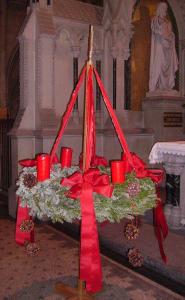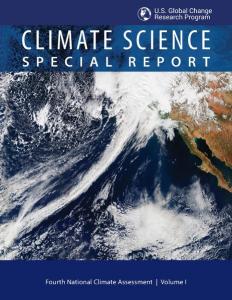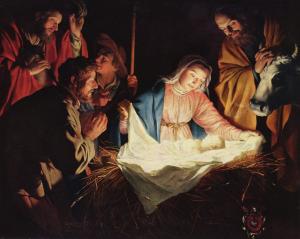 I doubt that Zephaniah would head many lists of favorite prophets of the Hebrew Bible, but since it has been enshrined in the canon, it must have spoken an important word to some group of Israelites at some time in their checkered history. In point of fact, that time can be quite directly pinpointed, if we take seriously the historicity of the rather long genealogy that fronts the book. It reads: “The word of YHWH that came to Zephaniah, son of Cushi, son of Gedaliah, son of Amariah, son of Hezekiah, in the days of King Josiah, son of Amon of Judah” (Zeph.1:1). Not only does the phrase say quite directly that Zephaniah is a descendant of two reforming kings of Judah, Hezekiah and Josiah, but it also tells us when he was active as a prophet, namely during the reign of Josiah who became king of Judah in 640BCE, and was killed by the armies of the pharaoh Neco in 609BCE. That death was the result of a ridiculous attempt of Josiah to stop the great Egyptian army on its way to aid the armies of the Assyrians who were reeling under the blows of a combined Babylonian and Median onslaught. The result of Josiah’s death was a period of mourning in Judah and the ascension to the throne of Josiah’s son Jehoiakim, who apparently unlike his father, was little interested in a renewed Judah, but rather sought only power for himself and his emerging court. If Jeremiah’s prophecy is read against this history, one might conclude that the prophet sided with the reforming Josiah, but quickly turned against the policies of his son (see Jer.22 as an especially scathing rebuke of the new king).
I doubt that Zephaniah would head many lists of favorite prophets of the Hebrew Bible, but since it has been enshrined in the canon, it must have spoken an important word to some group of Israelites at some time in their checkered history. In point of fact, that time can be quite directly pinpointed, if we take seriously the historicity of the rather long genealogy that fronts the book. It reads: “The word of YHWH that came to Zephaniah, son of Cushi, son of Gedaliah, son of Amariah, son of Hezekiah, in the days of King Josiah, son of Amon of Judah” (Zeph.1:1). Not only does the phrase say quite directly that Zephaniah is a descendant of two reforming kings of Judah, Hezekiah and Josiah, but it also tells us when he was active as a prophet, namely during the reign of Josiah who became king of Judah in 640BCE, and was killed by the armies of the pharaoh Neco in 609BCE. That death was the result of a ridiculous attempt of Josiah to stop the great Egyptian army on its way to aid the armies of the Assyrians who were reeling under the blows of a combined Babylonian and Median onslaught. The result of Josiah’s death was a period of mourning in Judah and the ascension to the throne of Josiah’s son Jehoiakim, who apparently unlike his father, was little interested in a renewed Judah, but rather sought only power for himself and his emerging court. If Jeremiah’s prophecy is read against this history, one might conclude that the prophet sided with the reforming Josiah, but quickly turned against the policies of his son (see Jer.22 as an especially scathing rebuke of the new king).
Where Zephaniah fits into this scene is far less clear. He often sounds much like the prophets who preceded him, both in the 8th and 7th centuries, but his words have a generic ring about them that makes historical proof difficult. For the purpose of this essay, I will assume that Zephaniah and Jeremiah were contemporaries and faced the same confusing and fast-changing Middle Eastern landscape. Of course, the most significant fact concerning Josiah’s reformation was the “discovery” of, (or the planting of), a scroll in the temple of Jerusalem, a scroll that has long been believed was a portion of the book we know now as Deuteronomy. That discovery during a Temple restoration project is usually dated to 622BCE. Once the scroll had been authenticated by the prophet Huldah, Josiah immediately began the institution of the demands found in the hallowed document, including the proscription of all YHWH shrines outside Jerusalem, creating the requirement of centralized worship in the great Temple. Whether or not Zephaniah was directly involved in this reformation and significant reworking of the religious life of Judah cannot be proven, but it has long been noted that the language of this prophet has a decided Deuteronomic flavor.
I imagine that the collectors of the lectionary chose this passage for Advent 3 because of its praise-filled language, words that promise justice for Judah, and a joyous homecoming to Jerusalem of all the world’s peoples. Such language is reminiscent of Is.2:2-4, where all the world will one day “stream to Zion” and once there will beat their weapons of war into agricultural tools and stop learning how to wage war forever. This dream was so vivid that it is found also in Micah 4:3. Though Zephaniah does not repeat that lovely hope, he offers a lively and richly hopeful prospect of the future of Judah’s success, when both “lame” and “outcasts” will find new lives in Jerusalem and when Judah will be “renowned and praised among all the peoples of the earth” (Zeph.3:20).
I readily admit that passages like this too often sound to me like pipe dreams, visions that curl like smoke clouds before my eyes but all too soon fade into the air, leaving only a brief hint of a sweet smell that also soon vanishes away. How can anyone imagine, living in a day like our own, that YHWH will bring us joy and hope once again, will make those of us who believe in God’s power centers of hope and possibility for the lame and outcasts of the world? After all, the world seems so broken, not redolent of hope but rather filled with despair and darkness.
In our own time, we often hear that the world has never been so troubled, so full of hopelessness, so divided between the few who control so much and the many who have so little. Our own country, overtly separated between those who fear change, and whose fears lead often to hatred and a refusal to listen to facts, and those who continue to hope for a world where all may find a life worth living, is a cardinal example a troubled and separated land. And those separations are all observed under the very real threat of planetary death, where the temperatures and the oceans rise while the forests and ice packs fall. Despite the foolishness of several of our supposed leaders, climate change is real, and we are the primary cause. Winter cold snaps will not change that truth, nor heavy falls of snow. The weather records the data of daily and weekly changes while climate refers to averages over hundreds of years. In the face of that coming catastrophe, whose possibility grows with each year of our inaction, thoughts like those of Zephaniah 3 sound like pie-in-the-sky nonsense.
Yet, if we have placed the prophet in his correct historical context, that is the latter part of the 7th century BCE, his soaring words of hope were uttered against a backdrop not unlike our own. The Assyrian empire that had controlled and ravaged the Middle East for nearly four centuries was collapsing to be replaced soon by a Babylonian empire that would outstrip its predecessor in every way. It in turn would quite soon fall to the Medo-Persian empire that would nearly conquer the whole of the known world, stopped only by the plucky Greeks some 300 years later. Tiny Judah, as always, was the weakest of pawns on the vast chessboard of this part of the globe, serving as little more than a watering stop of empires on their ways to mighty confrontations that would decide the fate of all the world. From that pathetic platform of Judah, Zephaniah uttered a clarion call of YHWH’s hopes for the future, a future that did not in fact run through Assyria or Babylon or Persia or Greece, but through miniscule Judah.
And that fact leads us to Advent/Christmas. Once again, we stand on the cusp of God’s audacious promise of light in darkness, of hope in despair. Once again, the babe is born in Judah, in Bethlehem and in his infant cries we hear against all the dreadful realities that God is still with us, and that our hope and our dreams are not merely pipe dreams after all. Zephaniah proclaims that “you will fear disaster no more” (Zeph.3:15), and because that is true we will join our God in mighty attempts to avert any disasters that may come our way, for they surely will. Once we learn not to fear them, we can look them square in the face and take them on. This Christmas, may we heed the call of Zephaniah and live into and work for the hope of the promise of YHWH.
(Images from Wikimedia Commons)












